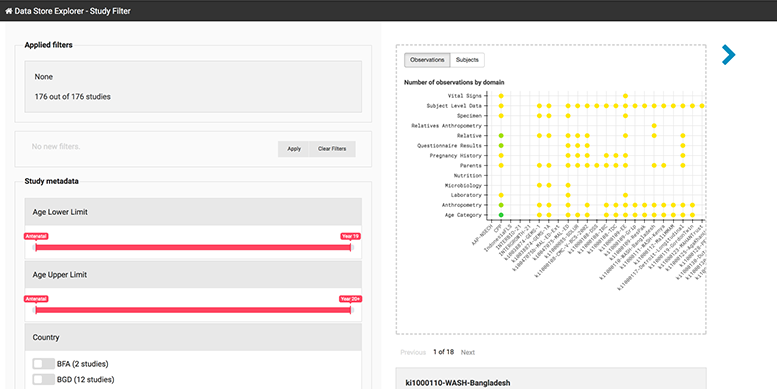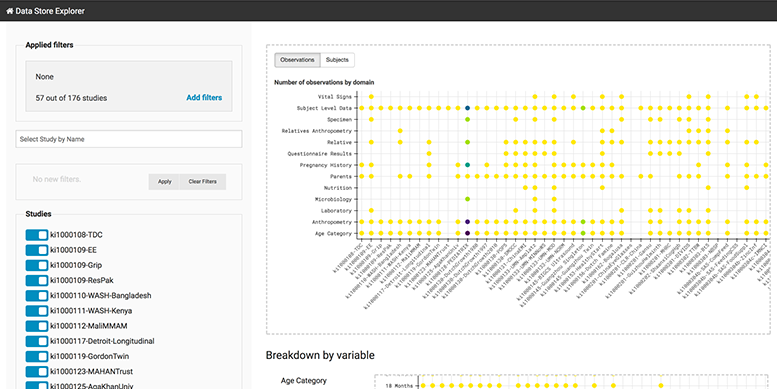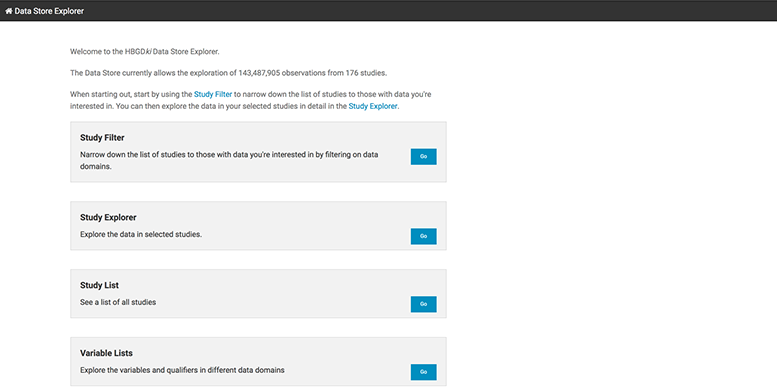The Study Explorer tool, also known as the Data Store Explorer, presents information about the experimental design of the individual studies, such as whether a study is longitudinal or cross-sectional, interventional, or observational, and the ages, calendar years, and countries of study enrollment. The tool enables you to search for the presence of standardized data fields such as anthropometry measures, biomarkers, microbiology tests, and nutrient intake quantities. Study Explorer displays descriptions of the studies or the study data; facilitates a search for studies that have specific design features or relevant data for your question.
Intended Use
On the home page, there are 4 go buttons that you can use to explore descriptions of the studies or the study data; the top 2 go buttons are the most relevant for most users. From the study filter go button, you can search for studies that have specific design features or relevant data for your question.
A primary use case walk-through of Study (Data Store) Explorer
Start Date
October 2016
Stage of Development
Beta
Team Members
Tom Peppard, Tim Kinkead, Continuum Analytics


